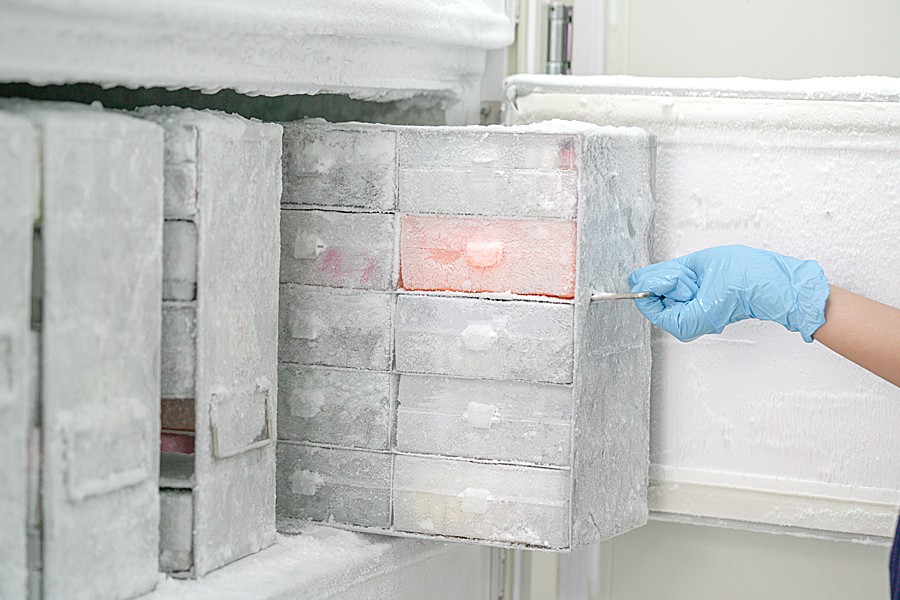With hundreds of research labs across Johns Hopkins, it's safe to say these spaces account for an ample portion of the university's carbon footprint.
With that in mind, the Office of Sustainability is steering its Eco-Smart Labs program to find new opportunities to conserve resources. One key effort is the Freezer Challenge, starting in February, which calls on researchers to clean up and upgrade their cold storage equipment to increase energy efficiency. (See details and sign up below.)
"Labs present a great opportunity because they are so resource-intensive," says Ashley Pennington, sustainability manager for Johns Hopkins. "And as Johns Hopkins is the nation's first research university, it's essential that we conduct and facilitate this tremendous discovery and innovation as responsibly as possible."
Eco-Smart Labs ramped up this fall by plastering stickers on fume hoods across Hopkins, encouraging researchers to close the sash when the equipment is not in use. The program also includes new efforts at recycling—of lab gloves, Styrofoam, and various instruments such as pipettes—as well as identifying opportunities to upgrade equipment with more-energy-efficient models.
One shining model of energy efficiency is the Undergraduate Teaching Laboratories facility on the Homewood campus, which earned LEED platinum status this year-the highest ranking a building can achieve by green building standards.
Video credit: Johns Hopkins University
The four-story facility uses half the energy of similar lab buildings through cutting-edge technology such as heat recovery wheels, chilled beams, and radiant heating, as well as vacuum pumps to reduce water use. Another example UTL provides is that of "decommissioning," or powering down sections of lab space during extended periods when they're not in use, such as holiday breaks.
Eco-Smart Labs will be looking for similar opportunities across Hopkins with other lab spaces undergoing renovations or upgrades. In the future, the Office of Sustainability also intends to provide more in-depth resources and training for lab users. (For questions and suggestions on the program, or to sign up for tips and training, email sustainability@jhu.edu).
And back to that Freezer Challenge: Johns Hopkins is joining the larger international effort throughout February and March, promoting smarter use of cold storage equipment to yield big energy savings.
Participants will be encouraged to take such actions as defrosting their freezers, cleaning dust from coils, and removing items that are no longer needed. More advanced options include temperature tuning, upgrading to higher-efficiency freezers, and using room temperature storage for certain samples.
Those who join the challenge will get opportunities for education, incentives, and rewards such as gift cards. Sign up at freezerchallenge.org/sign-up, designating your organization as Johns Hopkins. More information is available in the Freezer Challenge FAQs.
Posted in News+Info, Tools+Tech








